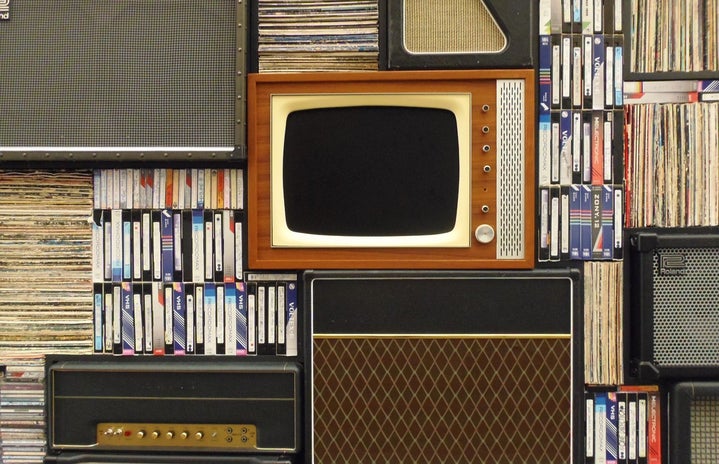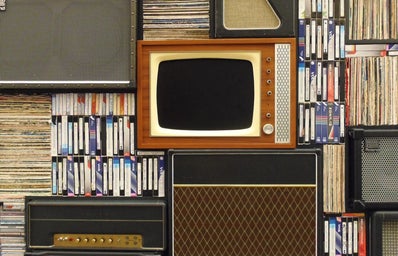A recommendation for the end of women’s history month
Phoebe Waller-Bridge is a dream dinner party guest. She is witty, dark and endlessly surprising – her work can make anyone laugh.
She has also taught me more through her show, ‘Fleabag,’ than any other television writer.
Yes, Waller-Bridge’s ‘Fleabag’ was aired over two years ago, but I continue to rewatch religiously. ‘Fleabag’ isn’t just a comfort show – it makes me think as much as it makes me laugh.
Waller-Bridge plants punchy one-liners in her writing with a level of depth I sometimes struggle to understand.
When Waller-Bridge’s character Fleabag rises in a quaker meeting to say, “sometimes I worry I wouldn’t be such a feminist if I had bigger tits,” is she simply making another off-hand remark about her body, timing it as inappropriately as ever? Is she talking about the reach of the modern feminist movement and how it continues to limit women through their bodies? Is she equating her sexuality with how she is perceived by society? Is she wondering about how her breasts manifest as a symbol of power?
Perhaps the answer to all of these questions is yes.
Season one of ‘Fleabag’ chronicles Fleabag’s struggle to overcome the loss of her mother and best friend while coming to terms with the consequences of her own actions. As Fleabag shamelessly pursues sexual relationships as a method of avoidence, and perpetually breaks the fourth wall to dissociate from her own actions, she grapples with her fears about her own morality and feminism.
In the first episode of ‘Fleabag,’ Fleabag and her sister, Claire, attend a feminst lecture called, “Women Speak.” The speaker asks audience members to raise their hands if they would trade five years of their life for the so-called, “perfect body.”
Both Fleabag and Clare raise their hands immediately, before quickly lowering them when they realize they are the only women in the room to have done so.
“We are bad feminists,” Fleabag tells Claire.
The question of what makes a good feminist is sprinkled throughout the show, as Fleabag assesses her relationship with men. She questions if she truly is just obsessed with the “awkwardness” and “performance,” of sex, or if she genuinely escapes her life through male validation.
Fleabag’s feminism often manifests in the way she views the women in her life. Her sister, so entrapped by the neoliberal, capitalist society that she essentially thrives on her achievements, feelings aside. Her mother, who by all accounts was responsible for all of the wonderful, painful, bold personality traits that make Fleabag who she is. Boo, her best friend who’s death has cast a dark shadow on everything joyful in Fleabag’s life.
Fleabag’s relationships to these women allow us to see how her life has not been shaped, or even in some cases affected by the men she’s slept with, but rather by how sleeping with these men has affected her relationships with these women.
After Boo and Fleabag’s mother have died, Fleabag is left only with her sister and their strained relationship. This is where we, the viewers, come in.
In talking to the camera, Fleabag is bold and witty, constantly analyzing and joking about everything in her life. She lets us know that she is in complete control and truly finds all of her day to day struggles hilarious. Fleabag subverts the constant, impending presence of the male gaze by telling us she’s aware of and indifferent to it, whether or not this is always the case.
As Fleabag nears a reckoning towards the end of season one, her relationship with her sister is tested, and she must realize the ways her toxic relationship with sex has negatively affected her life.
“Sometimes I wish I didn’t even know that fucking existed,” Fleabag says in the season finale, lamenting the ways her sexual expression has impacted her relationships and her life.
After a season of facing all of the trauma of her past, Fleabag faces something new in season two. As she puts it herself, “this is a love story.”
Season two of ‘Fleabag’ brings Claire’s marriage to a breaking point and Fleabag to something we have yet to see her face: love.
Waller-Bridge tantalizingly ties Fleabag’s atheism to catholicism as Fleabag falls for a priest and spends the season toying with power dynamics both inside and out of religion.
Fleabag continues to dissociate from her life, talking to the audience, and even claiming us as her friends in a counseling session. However, the fourth wall becomes more and more prominent as the priest notices her constant dialogue with us, and she becomes self conscious of the parts of her life we can now see: her hope.
When Fleabag and the Priest debate the merits of religion, she says, “don’t make me an optimist, you will ruin my life.”
The priest echoes this idea in the last episode of the season when, speaking at Fleabag’s father’s wedding, he says, “love isn’t something that weak people do. Being a romantic takes a hell of a lot of hope. I think what [people] mean is, when you find somebody that you love, it feels like hope.”
Fleabag, secure in her cynicism, has avoided all attempts at genuine connection since Boo’s death. She has pushed away the people that love her and intimacy has instilled fear in her. As she continues to grapple with her loss, she finds herself forming a connection deeper than anything she appears to have felt before, with someone who already understands this type of connection. Except he feels it with God.
Waller-Bridge’s feminism isn’t preachy or restrictive. We know Fleabag is a feminist becuase she constantly questions this about herself. The show is peppered with all kinds of strong, wonderful women who live their feminism in entirely different ways.
The overall message seems to come from a woman Fleabag meets in Episode Three of Season Two, who tells her that “women are born with pain built in.”
Fleabag fears this pain and does her best to avoid it throughout the series. However, pain is inevitable, and facing it is ultimately the answer to her problems. As her father tells her in the last episode, “you know how to love better than any of us. That’s why you find it all so painful.”
When Fleabag finally comes to terms with her trauma and her issues with emotion, she is finally ready to move on from us. As she walks away in the final episode, she leaves us behind, telling us she will be okay on her own now.
Every time I watch ‘Fleabag,’ I find a deeper meaning in every pause, every character, and every line. Each rewatch yields a discovery about my relationship to feminism, and I relish it.

